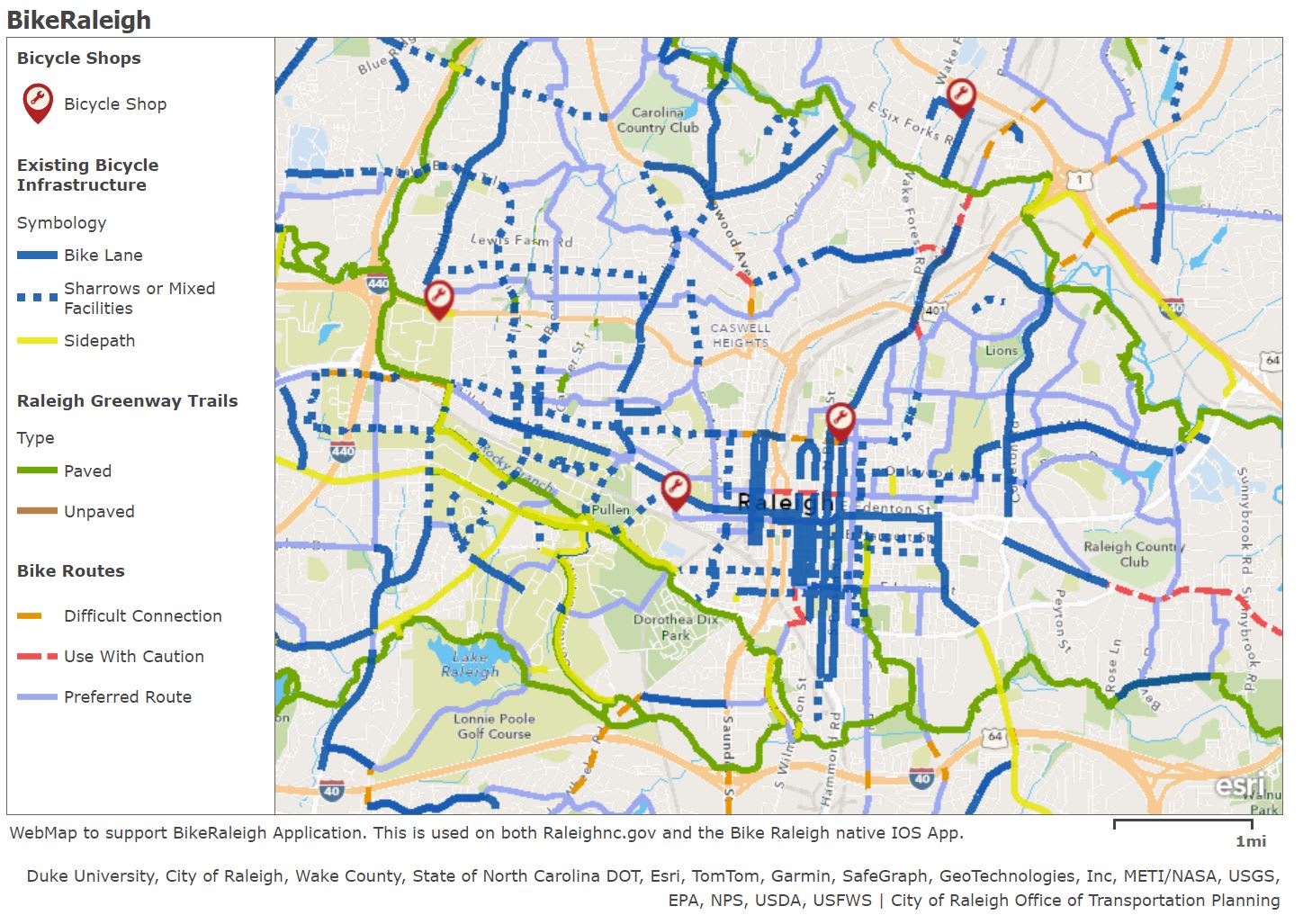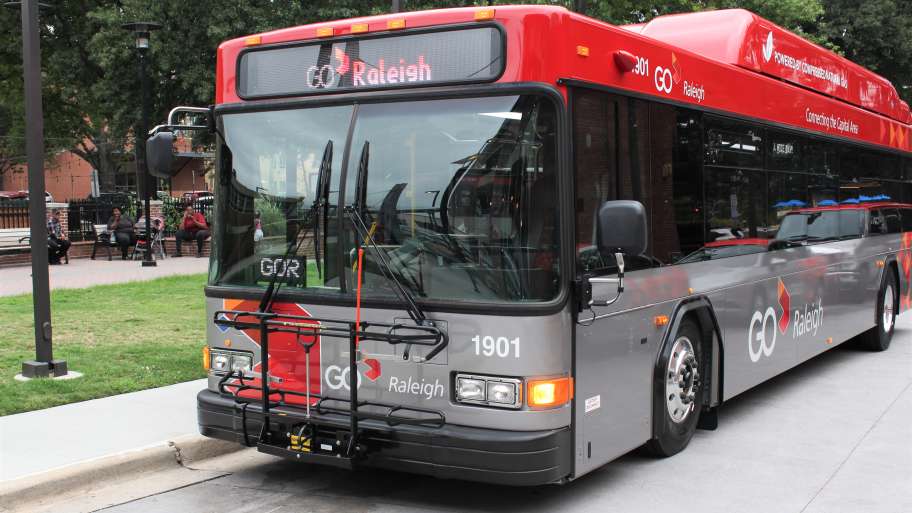Raleigh, a vibrant city known for its lush greenways and bustling urban centers, offers a unique opportunity for residents to rethink their commuting and lifestyle habits. With the average cost of a new car soaring to $47,218, which translates into a $700 monthly payment for 72 months at a 6% interest rate, not to mention additional expenses like insurance, fuel, and maintenance, many are opting for more sustainable and affordable alternatives. If you are having the same thoughts, this will guide you with the multifaceted benefits of adopting a car-lite lifestyle in Raleigh, highlighting how using bicycles or walking not only saves money but also boosts health and contributes to a more enjoyable life.
The Cost of Car Ownership in Raleigh
Owning a car in North Carolina involves various expenses that cumulatively average nearly $4,500 annually, which is about 10 percent below the national average of $4,960, as reported by Insurify in 2022. These costs encompass not only the typical yearly expenses for insurance, taxes, gas, and maintenance but also take into account the specific price fluctuations such as the cost of regular gas being $3.58 per gallon in August of the reported year. Additionally, the state's effective vehicle tax rate stands at 1.2 percent, further contributing to the overall financial burden of car ownership.
In a more detailed breakdown, the cost of full coverage car insurance in North Carolina averages to $2,040 per year or $170 per month, with minimum coverage costing about $609 annually or $51 monthly, according to BankRate's 2024 data. This reflects a scenario where North Carolina drivers pay roughly 12 percent less for full coverage compared to the national average. The financial impact varies significantly among different driver demographics and circumstances; for instance, 16-year-old drivers face the highest insurance costs, while those convicted of a DUI encounter increased rates, highlighting the significant potential for savings in car-related expenditures through careful management and consideration of insurance and maintenance choices.
Benefits of Going Car-Lite
- Boost of Financial Savings
Switching to a car-lite lifestyle can result in substantial financial savings. By forgoing a vehicle, you can save on average over $8,400 annually on car payments alone. This doesn't even factor in the additional savings from cutting out fuel and maintenance costs, which can add up to thousands more.
- Environmental and Health Benefits
Choosing to walk or bike instead of driving reduces carbon emissions and promotes a healthier lifestyle. Regular physical activity, such as cycling or walking, can improve cardiovascular health, enhance mental well-being, and increase overall life expectancy.
Alternatives to Car Ownership
Having a car-lite lifestyle in Raleigh is not as hard as you may imagine. Raleigh offers numerous alternatives that don't compromise convenience or accessibility.
- Cycling in Raleigh
Raleigh boasts an extensive network of bike paths and lanes that provide safe and scenic routes for cyclists. Local initiatives and biking laws support a growing community of cyclists, making it easier and safer to navigate the city on two wheels.
Resources for Cyclists
Raleigh is home to numerous bicycle shops and repair shops, along with active community groups that host regular rides and workshops, helping new and experienced cyclists alike. Here are some of the best bicycle shops in Raleigh, based on Yelp:
- Oak City Cycling Project
- John Bicycles
- The Bike Guy
- Cycle Logic
- All Star Bike Shops
- Trek Bicycle Raleigh Holly Park
- River Mill Cycles
- TLC for Bikes
- Inside-Out Sports
- All Star Bike Shop
Raleigh Bike Map
View interactive map here.
Best Cycling Routes in Raleigh
If you are planning to go on a road cycling around Raleigh, Komoot reviewed the road rides around Raleigh to identify the best. You may explore them here to find your ideal road cycling route around Raleigh.
1. Downtown Raleigh to Crabtree Park loop — Wake County
Level: Easy
Distance: 24.9 mi
Time Duration: 01:50
2. Downtown Raleigh to Neuse River Trail loop — Wake County
Level : Easy
Distance: 28.3 mi
Time Duration: 01:54
3. Falls Lake Causeway via Lake Lynn loop — Granville County
Level: Intermediate
Distance: 44.3 mi
Time Duration: 03:04
4. Shelley Lake via Crabtree Park loop — Wake County
Level: Easy
Distance: 25.2 mi
Time Duration: 01:48
5. Anderson Point Park from North Raleigh via Neuse River Trail loop — Wake County
Level: Easy
Distance: 30.1 mi
Time Duration: 01:57
- Walking as a Feasible Alternative
In 2020, Raleigh was awarded with a Silver-level Walk Friendly accreditation by the Walk Friendly Communities Program, recognizing the city's dedicated efforts in prioritizing pedestrian safety and comfort. The accreditation celebrates Raleigh's achievement in successfully nurturing environments that are safe, comfortable, and inviting for walking. This recognition highlights the city's commitment to enhancing walkability through improved infrastructure and community-focused initiatives.
- Exploring Public Transport Options in Raleigh
Utilizing public transportation and ride-sharing options can reduce the need for a personal vehicle. Raleigh's transit system offers extensive coverage, making it a viable option for many residents.
- Micro-transit: An on-demand responsive transportation service similar to Uber or Lyft, utilizing minibuses that are shared by several passengers. This service is particularly suitable for areas with lower population density, and Raleigh is currently exploring options for its implementation.
- Dynamic Routing: This refers to transit options that have flexible schedules and/or route alignments to accommodate varying passenger needs, such as special work shifts or events happening at unusual times. Dynamic routing was previously used in east and north Raleigh and may be implemented in both micro-transit settings and with standard 40-foot transit buses.
- GoRaleigh Bus Service: The city's fixed-route bus service, GoRaleigh, operates along designated transit routes within Raleigh. The service includes approximately 1,238 bus stops, with 52% located in communities of color. Bus shelters and benches are provided at stops with at least 10 boardings per day, with certain exceptions for locations serving hospitals, clinics, senior centers, and housing developments managed by Raleigh Housing Authority, DHIC, and Habitat for Humanity.
- Bus Stop Improvements: Funded by the Wake Transit Plan, which allocates about $2 million annually, roughly 60 new shelter improvements are constructed each year. An equity analysis tool is used to ensure the equitable distribution of these improvements across the city.
- Free City Buses: GoRaleigh has been operating with a suspended fare policy since early 2020 due to the Covid-19 pandemic, allowing everyone to ride at no cost. Prior to the pandemic, free fares were offered to senior citizens, children under 12, and teens aged 13-18 with a Youth GoPass. Many local employers and educational institutions participate in the GoPass program, which offers free transit at no cost to employees and students. Additionally, a 50% discount is available to anyone holding a Medicare Card.
Raleigh offers a robust array of transportation alternatives that cater to a car-lite lifestyle, enhancing both the economic and physical well-being of its residents. Living in Loft3 allows you to embrace these options while lessening the financial burden relevant with car ownership by an estimate of nearly $4,500 annually. Embracing a car-lite lifestyle in Raleigh underscores Raleigh's dedication to fostering a sustainable, accessible, and health-oriented urban environment. If this is the lifestyle that you want, reach out to us at 919.526.0401 or email us at [email protected]







